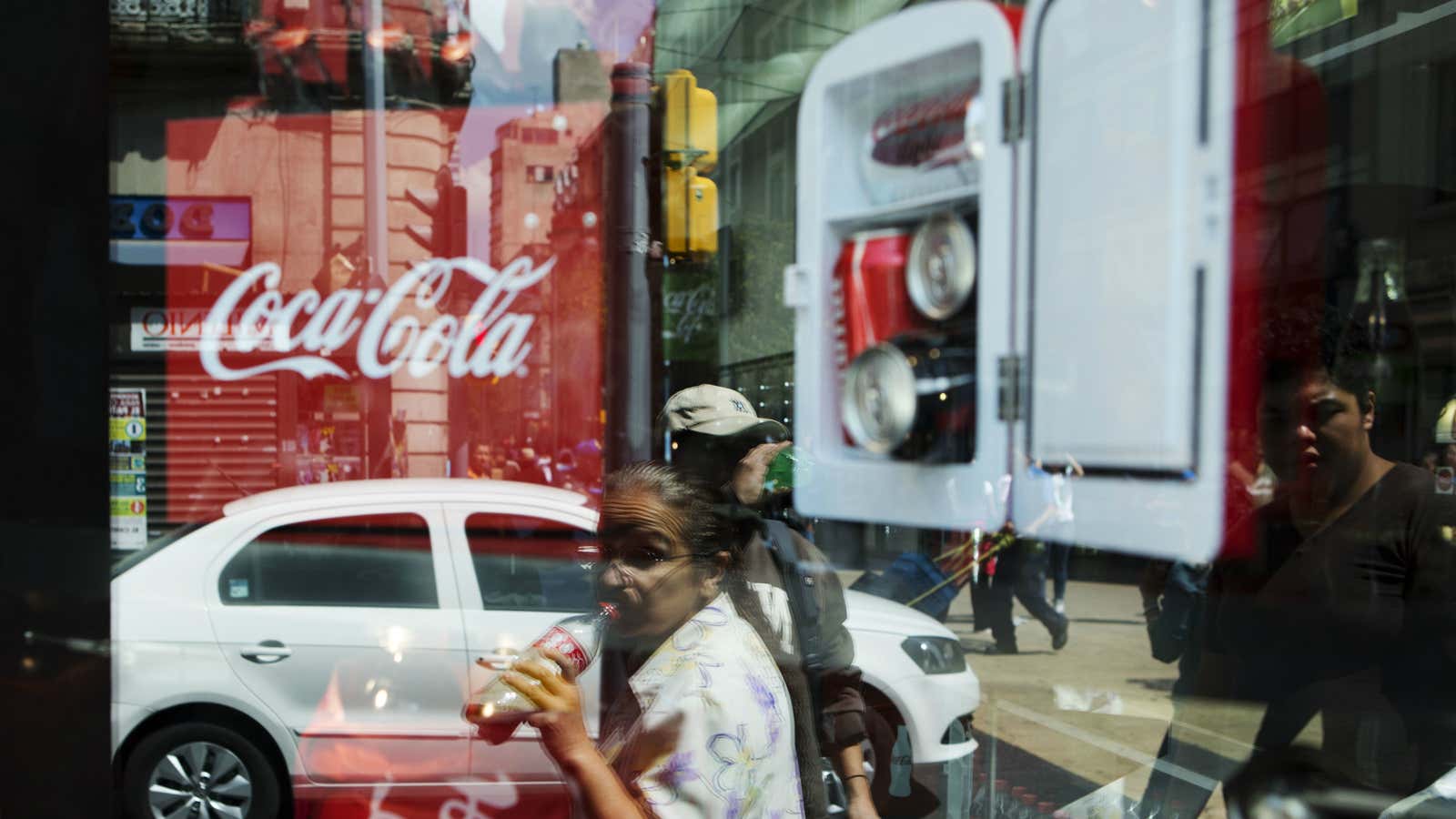Soft drinks are having a hard time. And it doesn’t look like 2016 is going to be any less challenging.
With more consumers showing a preference for health conscious food and beverage products, companies like Coca-Cola, Pepsi, and Dr. Pepper are increasingly on the defensive. Their namesake products are often described as having zero nutritional value, and a wide body of research has linked them to an increased risk of hypertension, obesity, and Type 2 diabetes.
These factors have had a brutal result on sales.
As reported in Politico, public-health advocates are looking to bring soda tax referendums and legislation to as many as a dozen US cities in 2016. That would be a broad assault on the soda industry, which last year spent more than $2 million to fight soda tax initiatives in the Bay Area of California alone. (San Francisco was unsuccessful in passing a tax in 2014, but its neighbor, Berkeley, became the first city in the country to adopt one, set at 1-cent-per-ounce.)
“Clearly the noise around the [soda taxes] has accelerated,” said Linda Montag, an analyst at Moody’s. “And it’s not just domestic. We’ve seen this in other markets, too.”
France started taxing sugary drinks in 2012 at $0.08 per liter, and Mexico followed in 2014 with a $0.06 tax per liter. Now, India has proposed a 40% tax on sugary sodas.
“Advocates for drinking less soda have succeeded in bringing the issue to public attention and the public has gotten the message,” said Marion Nestle, a New York University nutrition science professor and author of Soda Politics.
US consumers are abandoning carbonated sugary drinks for options with less sugar and fewer artificial flavors and ingredients, forcing soft-drink makers to find ways to make up for the lost revenue, according to a Moody’s Investors Service report.
“A key breakthrough that could reverse this trend remains elusive—the development of a good-tasting, zero-calorie, natural sweetener,” the report stated.
Absent that elixir, Moody’s said companies will likely focus more attention on emerging markets to make up for lost revenue, especially as rising middle classes across Africa and the Middle East gain more buying power.
Companies are also expected to reassess the other products they manufacture for growth opportunities. Coca-Cola, for instance, has numerous non-carbonated beverages, including a stake in the premium juice business Suja Juice, and a 16% minority stake in Keurig Green Mountain.
“Over the last decade, beverage companies have rolled out a vast array of beverage options in a range of calorie counts and portion sizes, including the highly popular mini-cans,” said Lauren Kane, spokeswoman for the American Beverage Association. “The changing lifestyles and preferences of Americans is what has always driven and will continue to drive the beverage industry.”
